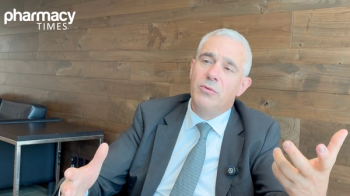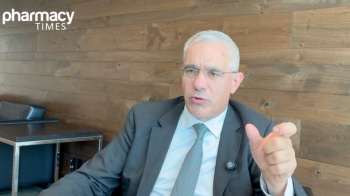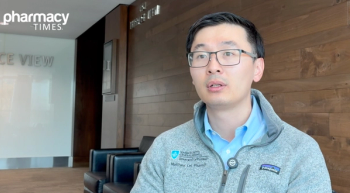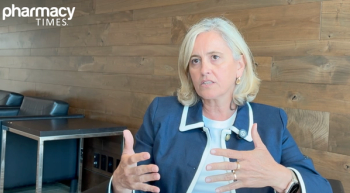
Gene therapy revolutionizes treatment in oncology, highlighting pharmacists' vital roles in patient care and long-term monitoring.

Gene therapy revolutionizes treatment in oncology, highlighting pharmacists' vital roles in patient care and long-term monitoring.

A real-world study at MSK reveals promising efficacy and safety of second-generation BTK inhibitors in mantle cell lymphoma treatment, influencing future guidelines.

Cevostamab shows promise as a post-CAR T therapy for relapsed/refractory multiple myeloma, enhancing MRD-negative responses and improving patient outcomes.

Alice Wang, PharmD, BCOP, discusses the rapid infusion of isatuximab for multiple myeloma, highlighting its benefits, safety, and improved patient convenience in treatment.

Pharmacists lead the charge in integrating pharmacogenetics into patient care, overcoming education barriers and enhancing treatment outcomes through expert guidance.

Recent FDA approval of nirsevimab and clesrovimab have transformed RSV prevention in infants, prompting new recommendations from the CDC and AAP and replacing the long-standing role of palivizumab.

Adam Kahleifeh, PharmD, BCOP, discusses the impact of IDH mutations in low-grade gliomas.

Mary Nauffal, PharmD, MS, BCOP, discusses innovative use of isatuximab for red cell aplasia post stem cell transplant, highlighting its potential in clinical trials.

Etentamig shows promise in managing infections for relapsed/refractory multiple myeloma.

Anitocabtagene autoleucel shows impressive efficacy and safety in treating relapsed/refractory multiple myeloma, achieving a 97% overall response rate.

Xavier Leleu, MD, PhD, shares how OBI technology reduces preparation time and manual pushes for pharmacists.

Paltusotine, the first oral treatment for acromegaly, offers hope for improved patient care and management.

Expert shares the evolving role of pharmacy in patient care, emphasizing treatment accessibility and monitoring.

The authors wrote that patients with CKD who are younger than 60 years may be at a greater risk of depression.

New IMWG/IMS guidelines enhance risk assessment for multiple myeloma, revealing daratumumab's impact on patient outcomes in real-world settings.

Pharmacists learn to recognize and combat burnout through self-awareness, open dialogue, and supportive workplace strategies for lasting well-being.

Pharmacists navigate the evolving hematology-oncology landscape, utilizing genetic insights and innovative therapies to enhance patient care.

New research links rapid CAR T-cell expansion to delayed neurotoxicity in patients with multiple myeloma.

Claudio Cerchione, MD, PhD, discusses the benefits of anti-CD38 quadruplet regimens for older patients with multiple myeloma.

Pharmacists navigate rapid oncology drug therapy changes, enhancing patient care through education, biomarker insights, and tailored counseling strategies.

Expert shares the promising potential of linvoseltamab in treating high-risk smoldering multiple myeloma.

Expert shares the latest advancements in CAR T therapy and novel treatments for myeloma, addressing access challenges and promising new options.

Older adults face heightened risks from RSV due to declining immunity and chronic conditions, making vaccination crucial for prevention and health.

Elranatamab enhances MRD negativity in relapsed/refractory multiple myeloma post idecabtagene vicleucel, promising improved treatment outcomes.

Expert discusses groundbreaking studies on the on-body injector for isatuximab, highlighting its efficacy, safety, and patient convenience.

Pharmacists enhance patient care in multiple myeloma by focusing on infection prevention, CRS management, and optimizing outcomes with T-cell engagers post-CAR T.

Belantamab mafodotin with bortezomib shows promising survival benefits for lenalidomide-refractory multiple myeloma patients.

Idecabtagene vicleucel shows a lower infection risk than other BCMA therapies for multiple myeloma.

Costimulatory bispecific antibodies revolutionize multiple myeloma treatment, offering deeper responses and flexible sequencing strategies for patients.

New findings reveal that combining daratumumab with lenalidomide significantly enhances MRD negativity and progression-free survival in multiple myeloma maintenance therapy.